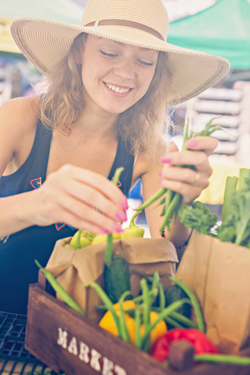
Are you trying to decide whether to buy organic? Are you familiar with the Dirty Dozen? The Environmental Working Group's high-profile list of fruits and vegetables that are the most toxic when grown conventionally (non-organically).
This list will help you determine which fruits and vegetables have the most pesticide residues and are the most important to buy organic. You can lower your pesticide intake substantially by avoiding the 12 most contaminated fruits and vegetables and eating the least toxic produce.
The Dirty Dozen has been expanded with a "Plus" category to highlight two crops -- green beans and leafy greens, meaning kale and collard greens. Even though they didn't meet traditional Dirty Dozen criteria, they were commonly contaminated with highly toxic organophosphate insecticides. These insecticides are harmful to the nervous system, and many have been removed from agriculture throughout the past decade. But they are not banned and still show up on some food crops.
Commodity crop corn used for animal feed and biofuels is almost all produced with genetically modified (GMO) seeds, as is some sweet corn sold for human consumption. Because GMO sweet corn is not labeled as such in US stores, EWG advises those who have concerns about GMOs to buy organic sweet corn.
Dirty Dozen Plus - Buy these organic
- Apples
- Celery
- Cucumbers
- Grapes
- Nectarines-Imported
- Peaches
- Potatoes
- Snap Peas
- Spinach
- Strawberries
- Sweet Bell Pepper
- Tomatoes
- Hot Peppers*
*May contain pesticide residues of special concern
Clean Fifteen - Lowest in Pesticide
- Asparagus
- Avocados
- Cabbage
- Cantaloupe
- Cauliflower
- Eggplant
- Grapefruit
- Kiwi
- Mangos
- Onions
- Papayas*
- Pineapple
- Sweet Corn*
- Sweet Peas - Frozen
- Sweet Potatoes
* A small amount of sweet corn and papaya sold in the United States is produced from GE (Genetically Engineered) seed stock. Buy organic varieties of these crops if your goal is to avoid GE produce.
For updates or additions to the list of the Dirty Dozen go to www.ewg.org

